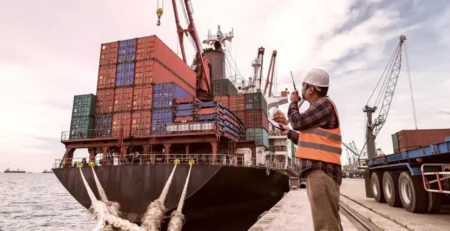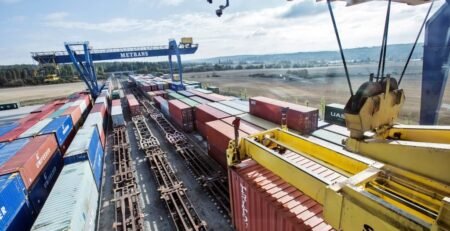Urgent Advisory: Logistics Industry Stakeholders Urged to Strengthen Contingency Plans

By Eva Richardson – March 11, 2025
As global supply chain disruptions continue to pose challenges, industry experts are warning logistics stakeholders to prioritize contingency planning to mitigate risks and maintain operational stability. Recent geopolitical tensions, extreme weather events, and capacity shortages have underscored the need for proactive risk management strategies in freight and logistics.
Growing Uncertainty in Global Supply Chains
The logistics sector has faced a series of disruptions, including port congestion, labor strikes, fuel price volatility, and shifting trade policies. These challenges are forcing companies to reassess their resilience strategies to avoid delays, financial losses, and reputational damage.
Industry analysts emphasize that contingency planning is no longer optional—companies that fail to prepare for unexpected disruptions risk falling behind in an increasingly volatile market.
Key Contingency Strategies for Logistics Stakeholders
To build resilience, logistics providers, freight forwarders, and shippers are adopting strategic measures to navigate uncertainty:
- Diversifying Supply Chain Routes: Expanding logistics networks to alternative ports, air freight corridors, and inland transport options.
- Investing in Technology: Leveraging AI-driven predictive analytics and real-time tracking to anticipate disruptions and optimize rerouting.
- Building Inventory Buffers: Companies are moving away from just-in-time models and increasing stock levels to cushion against delays.
- Enhancing Collaboration with Partners: Strengthening ties with multiple suppliers and logistics providers to ensure flexibility in case of emergencies.
- Developing Crisis Response Protocols: Implementing rapid response teams and scenario planning frameworks to address unexpected supply chain disruptions.
Expert Insights on the Future of Logistics Resilience
“Companies that invest in contingency planning today will be the ones that thrive in the face of tomorrow’s disruptions,” said a senior logistics strategist. “Agility, adaptability, and proactive risk management will define the leaders in the industry.”
As logistics companies look to the future, the ability to preempt and manage crises effectively will play a key role in ensuring long-term operational stability and customer trust.
Conclusion
With supply chain uncertainties becoming the new normal, logistics stakeholders must embrace contingency planning as a core business strategy. By integrating advanced forecasting, diversified logistics models, and collaborative partnerships, companies can protect their supply chains against unforeseen disruptions.
The Logistic News will continue to provide exclusive insights into industry trends, risk mitigation strategies, and logistics innovations shaping the future of global trade.
Stay tuned for more expert analysis on supply chain resilience and logistics security.
The post Urgent Advisory: Logistics Industry Stakeholders Urged to Strengthen Contingency Plans appeared first on The Logistic News.
Share this post
Related
Posts
Argentina, Brazil, and Mexico Fast-Track Regional Freight Agreements
BUENOS AIRES — July 4, 2025Faced with weeks of delayed cargo and unstable ocean routes, Latin America’s biggest economies are...
European Rail Freight Gathers Pace as Transit Times Improve in Poland
WARSAW — July 4, 2025Freight rail in Poland is accelerating, signaling a welcome turnaround for European inland transport. New data from PKP...
Freight Delays Mount at Toronto Pearson After Two Days of Storm Disruptions
TORONTO — July 4, 2025Cargo operations at Toronto Pearson International Airport are struggling to recover after two consecutive days of...
HIVED Secures $42M to Bring Greener Deliveries to More UK Cities
LONDON — July 4, 2025HIVED has raised $42 million to expand its all-electric parcel delivery service. The London-based startup says...





